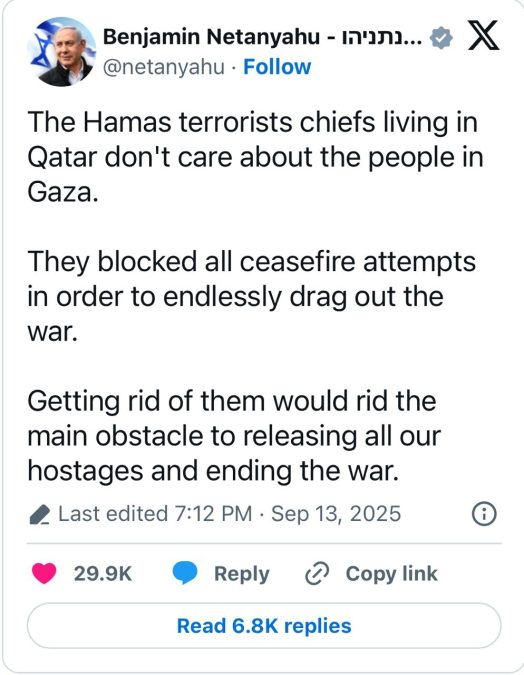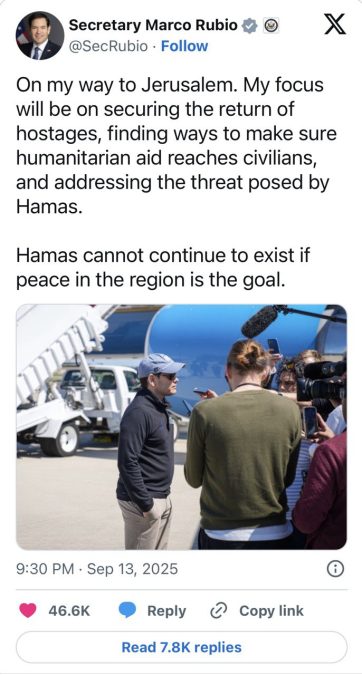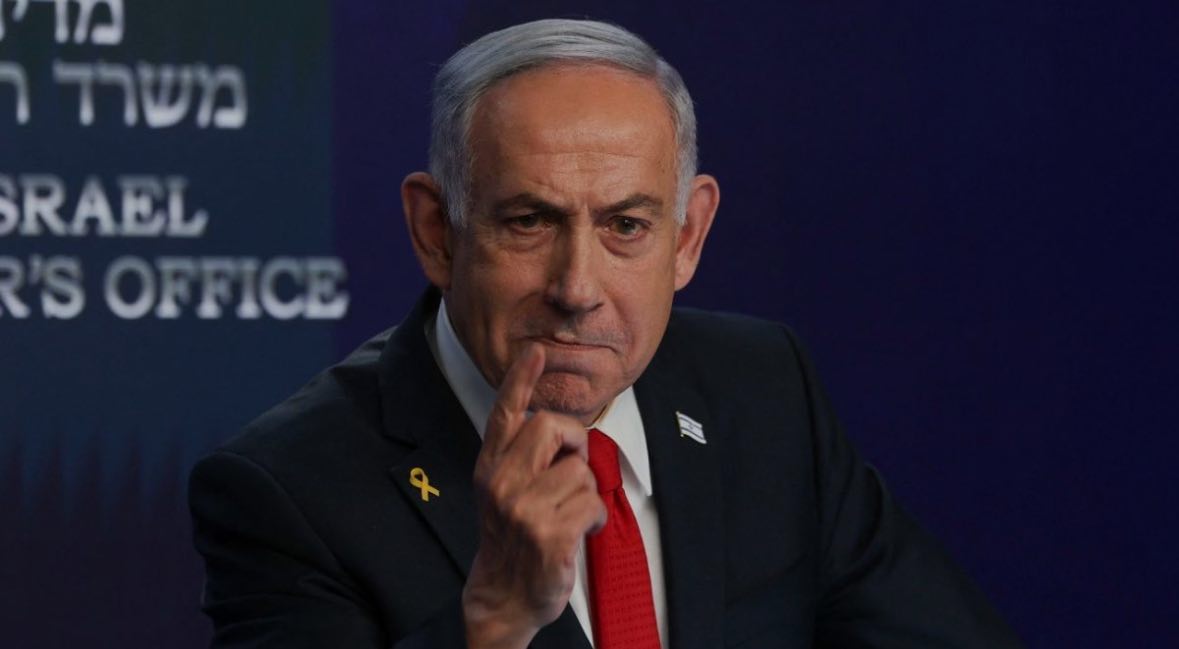Netanyahu’s grand gamble in Doha failed: Behind the scenes of Israel’s attack on Qatari soil
Netanyahu’s grand gamble in Doha failed: Behind the scenes of Israel’s attack on Qatari soil
According to the IranGate News Agency, Israel’s airstrike on a Hamas leaders’ meeting in Doha, the capital of Qatar, has sparked a wave of diplomatic tensions and security developments in the region.
This operation, introduced by Benjamin Netanyahu’s government as an action to weaken Hamas’ command structure, not only failed to achieve its declared objectives but also had widespread political repercussions for Tel Aviv’s relations with international allies and the peace negotiation process.
Now, as global criticism of this decision is increasing, the Israeli Prime Minister is facing intensified internal and external pressures, which could further complicate regional dynamics.
Netanyahu’s political gamble with the attack on Qatar: A new deadlock in the peace negotiations path
Israel’s recent attack on the Hamas leaders’ meeting in Doha, the capital of Qatar, is considered a high-risk move by Benjamin Netanyahu, the Israeli Prime Minister.
Although he sought to achieve a vision of complete victory over Hamas with this attack, evidence suggests that this action has resulted in the opposite outcome.
Despite this failure, Netanyahu has maintained his aggressive stance.
In response to this attack, the Hamas movement announced in an official statement on Friday, September 12, that the senior leaders of this group survived the Tuesday attack.
The statement mentioned that Khalil al-Hayya, the interim leader of Hamas, attended the funeral of his son, who died during the attack.
According to the Washington Post, the purpose of the Tuesday meeting in Doha was to discuss the ceasefire proposal by the Donald Trump administration to end the war in Gaza and release hostages. Israel’s attack effectively halted this process.
Mohammed bin Abdulrahman Al Thani, the Prime Minister of Qatar, condemned the attack during a UN Security Council session, saying that the extremists currently in power in Israel do not value the hostages; otherwise, how could the timing of this attack be justified?
In response, Benjamin Netanyahu wrote on the social network X on Saturday that the terrorist Hamas leaders living in Qatar not only do not value the people of Gaza but also obstruct all efforts to achieve a ceasefire to continue the endless war.

Netanyahu had previously threatened in a video message that Qatar and countries harboring terrorists should either bring them to justice or expel them; otherwise, we will do it ourselves.
Political and military failure in Doha
The Washington Post writes that despite the failure in the attack on Doha, there is no sign of Netanyahu retreating or changing Israel’s war strategy.
His extreme right-wing coalition also continues to support his aggressive policies, and currently, there is no threat to his political position.
International reactions: Trump’s anger and Rubio’s involvement
The Wall Street Journal reported a tense phone call between Donald Trump and Netanyahu following Israel’s attack on Qatar. Trump, who learned of the attack through the US military and not through Israeli diplomatic channels, was extremely angry about the action.
He told Netanyahu that the attack was unwise and contrary to the shared interests of Washington and Tel Aviv.
Trump also wrote in his post on the Truth Social network that the unilateral bombing of Qatari soil, a close US ally and active mediator in peace negotiations, is neither in Israel’s interest nor ours. However, he did not mention any punitive measures against Israel or pressure on Netanyahu.
Meanwhile, US Secretary of State Marco Rubio headed to Jerusalem on Saturday to discuss Israel’s recent action and the country’s response to the wave of recognition of Palestine by some Western countries with Netanyahu.
According to Axios, Rubio emphasized in closed-door meetings that he does not oppose the annexation of the West Bank to Israel, and the Trump administration will not be an obstacle to this action.
The United Arab Emirates has warned that such annexation would jeopardize the Abraham Accords and could dash Trump’s hopes for expanding these agreements.

International pressures and Israeli military operations
Israel continues military operations in Gaza, planning for the complete evacuation of parts of the Gaza Strip and advancing towards full occupation of Gaza City. The Israeli army has called for nearly one million residents of the area to evacuate.
Gael Talshir, a political science professor at the Hebrew University of Jerusalem, believes Netanyahu’s government is continuing its path by ignoring repeated international community requests to stop the war. He emphasized that only Trump can halt this path.
Netanyahu’s hope for a victory image
According to Washington Post sources, while many military personnel and Israeli public opinion oppose continuing the war, the hardline members of Netanyahu’s coalition government have threatened to topple his government if military operations in Gaza are halted.
An attack on Qatar, if successful, could have been a symbolic achievement allowing Netanyahu to declare the complete destruction of Hamas and simultaneously satisfy the hardline factions.
Harel Khourou, an Arab affairs expert at Tel Aviv University, described this action as more symbolic, saying the goal was for Netanyahu to be able to announce at some point, ‘We won, we killed them all.’ He also noted that Israel had the capability to attack Hamas leaders from the start of the war but refrained from doing so to preserve negotiations with Qatar.
Qatar has so far played a crucial role in two ceasefire agreements, leading to the release of 148 hostages, including the bodies of eight deceased. Meanwhile, Israel alone has only managed to return eight live hostages and the bodies of 51 individuals.
Khourou added that with this attack, Israel effectively announced its withdrawal from the negotiation path. They decided to burn the communication channel with Qatar.
Political future shrouded in uncertainty
According to the Washington Post, the failure in Doha could widen the gap between Israeli public opinion and Netanyahu. Polls show that more than two-thirds of Israelis want the war to end and an agreement for the release of hostages.
However, this public discontent has so far had little impact on Netanyahu’s decisions.
Yohanan Plesner, president of the Israel Democracy Institute in Jerusalem, says Netanyahu’s short-term political future depends not on public opinion but on the survival of the ruling coalition, which has so far fully supported his aggressive policies.

